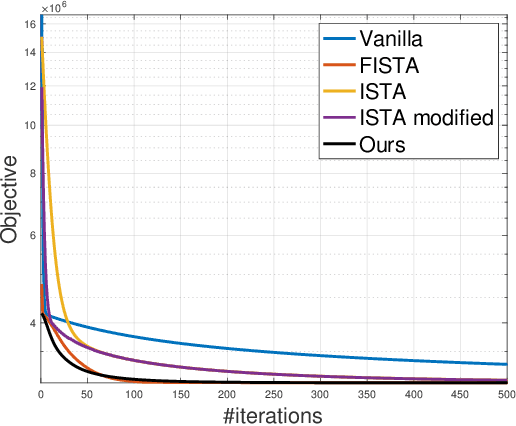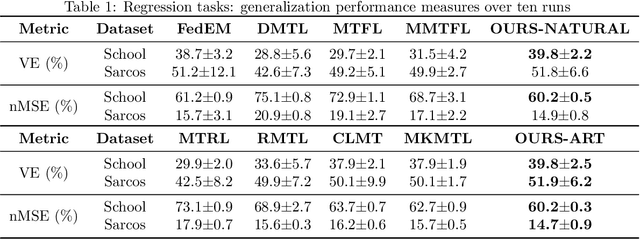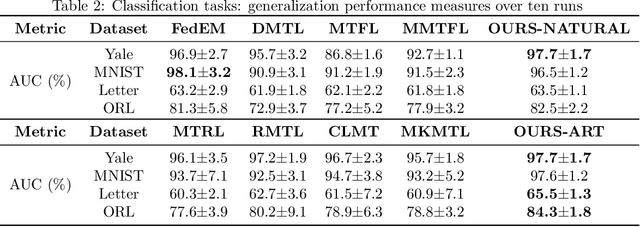Multi-Task Learning with Prior Information
Paper and Code
Jan 04, 2023



Multi-task learning aims to boost the generalization performance of multiple related tasks simultaneously by leveraging information contained in those tasks. In this paper, we propose a multi-task learning framework, where we utilize prior knowledge about the relations between features. We also impose a penalty on the coefficients changing for each specific feature to ensure related tasks have similar coefficients on common features shared among them. In addition, we capture a common set of features via group sparsity. The objective is formulated as a non-smooth convex optimization problem, which can be solved with various methods, including gradient descent method with fixed stepsize, iterative shrinkage-thresholding algorithm (ISTA) with back-tracking, and its variation -- fast iterative shrinkage-thresholding algorithm (FISTA). In light of the sub-linear convergence rate of the methods aforementioned, we propose an asymptotically linear convergent algorithm with theoretical guarantee. Empirical experiments on both regression and classification tasks with real-world datasets demonstrate that our proposed algorithms are capable of improving the generalization performance of multiple related tasks.
 Add to Chrome
Add to Chrome Add to Firefox
Add to Firefox Add to Edge
Add to Edge